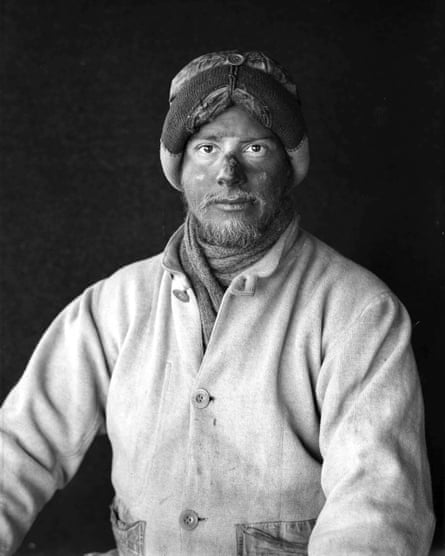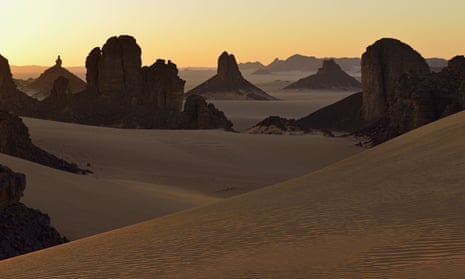In times like these, I’m drawn towards short stories, novellas and pithy memoirs with a powerful sense of far-flung places: enigmatic flights of fancy.
In the 1920s, the pioneering French aviator Antoine de Saint-Exupéry crisscrossed “desert as smooth as marble” to open up new mail routes across the Sahara. His 1939 memoir, Wind, Sand and Stars, weaves between past and present, the real and imagined, from cities of salt to antediluvian forests. He describes drinking dew to survive a plane crash, and the discovery of a single orange in the wreckage. “I lie on my back and suck the fruit, counting the shooting stars. For a moment, my happiness is infinite.”
It’s not always clear what is real and what is mirage, just as with the enigmatic dreamscape of Japan in Alessandro Baricco’s love story, Silk. The novel’s protagonist is a French merchant who in 1861 follows the silk road across Central Asia. There’s something magnificently alluring about the way Baricco compresses time and space. He quickly passes over Siberia with just a few brief words – except, he suggests, a place called Lake Baikal.
Sylvain Tesson was in a cabin on the shores of that lake in 2010, when he wrote Consolations of the Forest. Tesson evokes walking on ice with the lucid economy of a poet, and constantly questions perspective: “When you consider the voyage of a snowflake, from the peaks to the lake and the lake to the sea via the rivers, you feel like a poor excuse for a traveller.”

Another traveller whose pen seems to write even more fluently at freezing temperatures is Sara Wheeler. Her biography of the explorer Apsley Cherry-Garrard, Cherry, holds you enthralled in its icy grip. One of the youngest members of Scott’s final expedition to the Antarctic in 1910, Cherry-Garrard’s many adventures included a winter foray to Cape Crozier to collect emperor penguin eggs – an expedition he described in his memoir The Worst Journey in the World. Wheeler’s writing is deeply empathetic to both the man and the place, as she shows in her account of her own experiences there, Terra Incognita.
Daniel Mason evokes the equatorial heat of the jungle in 19th-century Malaya with his short story “The Ecstasy of Alfred Russel Wallace”, in his collection, A Registry of My Passage Upon the Earth. Mason takes you inside the head of a man whose “physical travels were but a faint trail through the vastness of his wonder”, through dense forests, “clots of insects” tumbling out of coconut blossoms.
For all the exotic allure of far-flung locations, the past can seem even more remote. As I Walked Out One Midsummer Morning by Laurie Lee describes a long walk around Spain in the 1930s, when Europe was wide open, “a place of casual frontiers, few questions and almost no travellers”. There may have been a brutal war in the offing, but how I wish I’d seen the Spain he saw – pre-Brexit, pre-Covid, pre-mass tourism. On what we now call the Costa del Sol, he watches “a white-sailed fishing fleet, voiceless, timeless, quiet as air, drifting inshore like bits of paper” – an image that transports me to a time and place forever beyond our reach.
